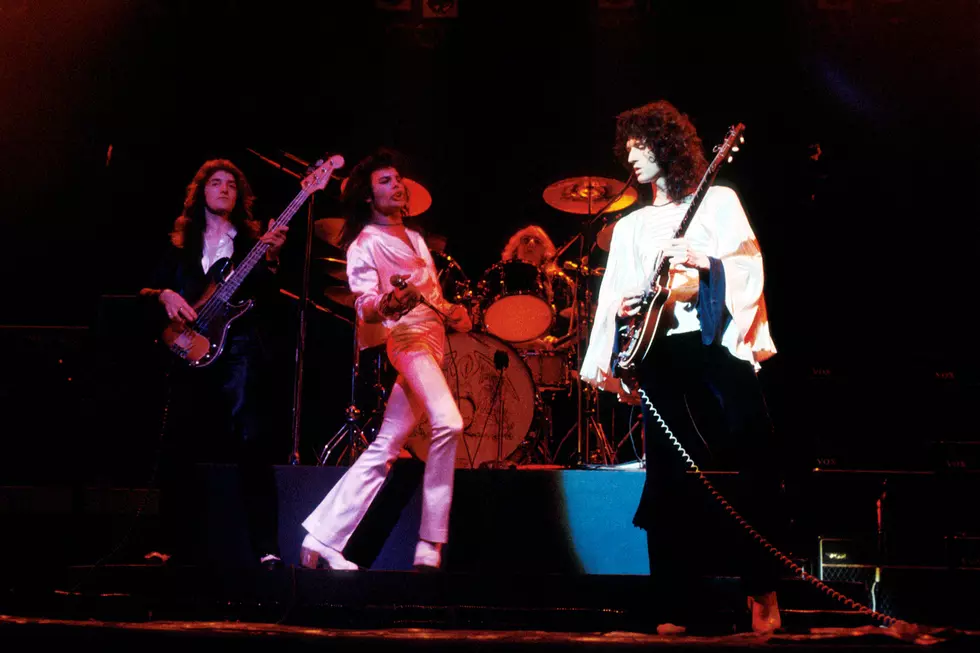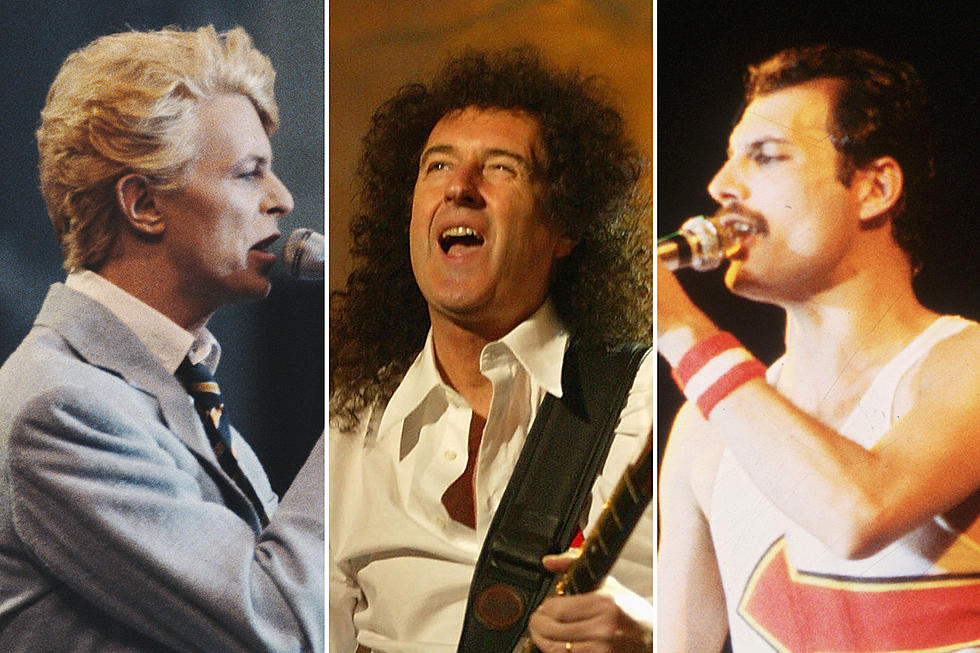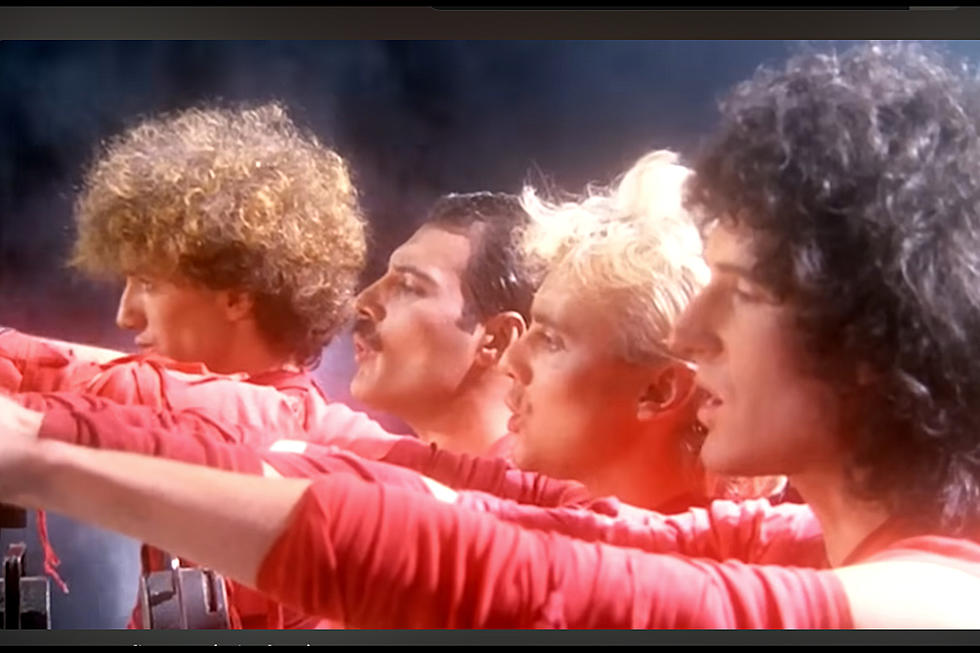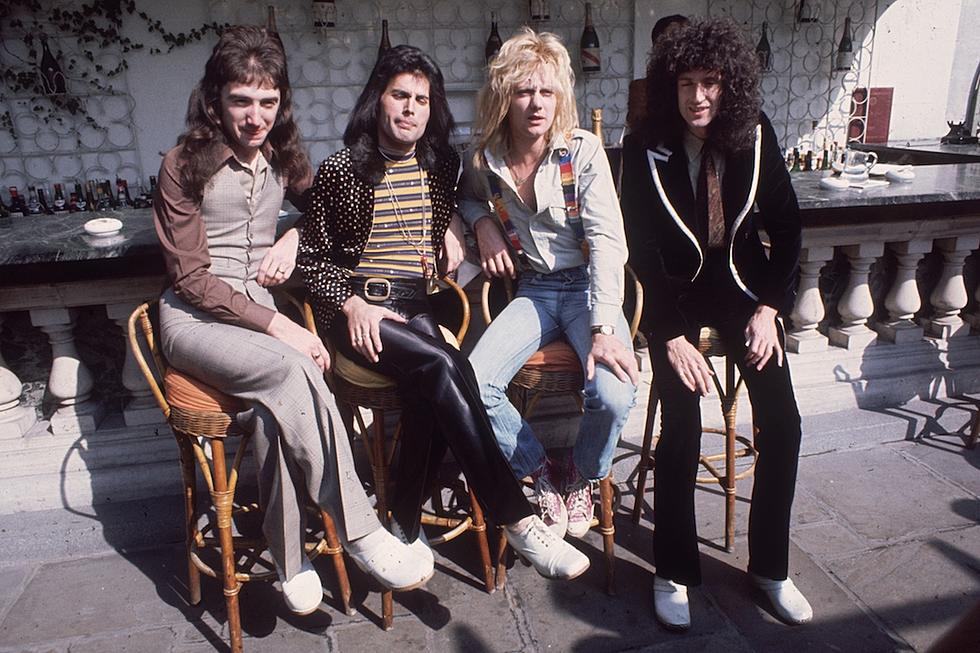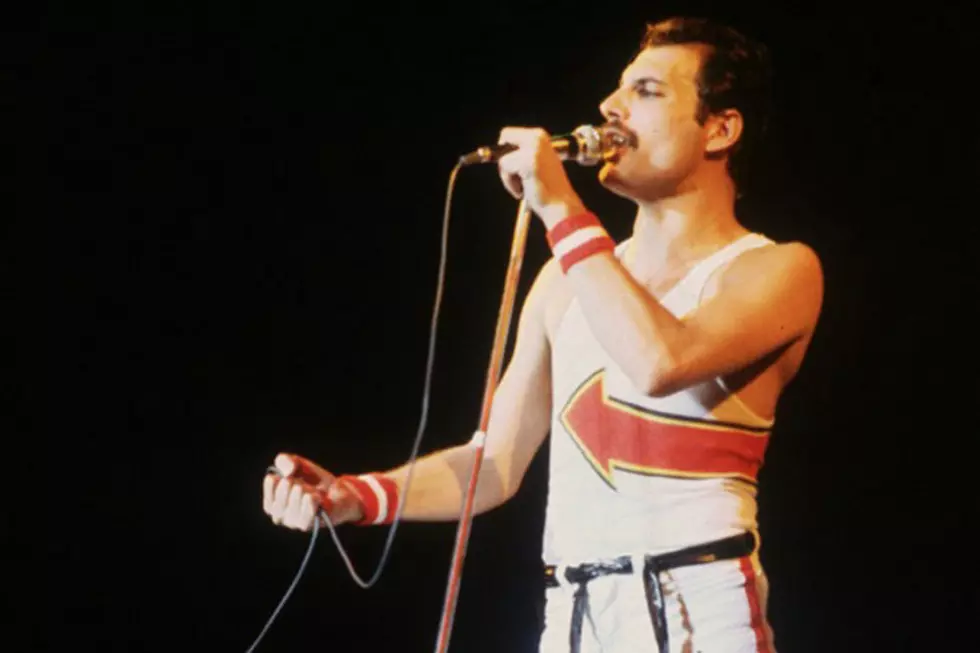
The Day Freddie Mercury Died
Freddie Mercury was the face of Queen's wildly popular mixture of hard rock, pop, cabaret, glam and opera in the '70s, before becoming one the the AIDS virus' most well-known casualties in the '90s. He died on Nov. 24, 1991, just one day after issuing a statement in which he confirmed rumors that he had the disease.
At Queen's zenith, Mercury, Brian May, Roger Taylor and John Deacon forged a completely new hybrid that centered on Mercury's brand of impish decadence, one that ultimately became bound up in the mythology of his early passing, as well. But the group, and Mercury, was always more than the sum of its out-sized bacchanalia. Queen's signature creative moment was also Mercury's, as he layered his own voice into a choir for "Bohemian Rhapsody," a painstaking process in the days of reel-to-reel tape. Over the years, Mercury also wrote "Killer Queen," "Somebody to Love," "Crazy Little Thing Called Love" and "We Are the Champions" for Queen, while issuing a well-received solo reinterpretation of the Platters' "The Great Pretender" in 1987.
Along the way, the band's unique musical alchemy, not to mention those elaborate studio concoctions, set the standard for a series of suitably far-flung bands: Journey swiped Queen producer Roy Thomas Baker for its first albums with Steve Perry, while Styx would borrow heavily from Mercury's knack for Broadway prog. Neo-classical heavy metal artists like Yngwie Malmsteen consistently referenced the band's crunchy rock template, while Metallica went so far as to record their own version of Queen's "Stone Cold Crazy." There are countless others.
None of them, however, could approach Mercury's unique on-stage presence, confirmed all over again after their hit-making days were largely over when Queen galvanized fans worldwide as part of the Live Aid concerts. Born Frederick Bulsara in Zanzibar to a government accountant, Mercury died of bronchopneumonia resulting from AIDS just six years later. Mary Austin, Mercury's one-time partner and life-long friend, has faithfully followed the singer's wishes and kept the whereabouts of his ashes a secret -- even from his parents.
Mercury continued recording until not long before his death, losing none of his vocal power, even as his body began to noticeably waste away. While working on "The Show Must Go On" in 1990, May questioned whether Mercury was well enough to continue. "And he went, 'I'll fucking do it, darling' — vodka down — and went in and killed it," May remembered. "Completely lacerated that vocal." Enough sessions work was left over, in fact, for a huge-selling posthumous release; 1995's Made in Heaven would go four-times platinum in the U.K.
Austin also received both Mercury's opulent Edwardian mansion, located in West London, and the bulk of his fortune. May and Taylor, meanwhile, have continued on as Queen with a series of guest singers, including George Michael, Paul Rodgers and -- most recently -- American Idol finalist Adam Lambert. They also established the Mercury Phoenix Trust in 1992 in memory of Mercury, raising awareness and funds as part of the fight against AIDS.
Freddie Mercury Year by Year: Photos 1973-1990
You Think You Know Queen?
More From Ultimate Classic Rock

